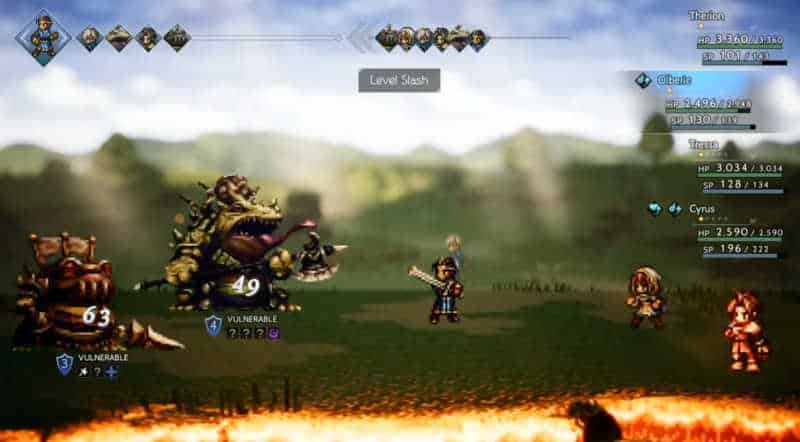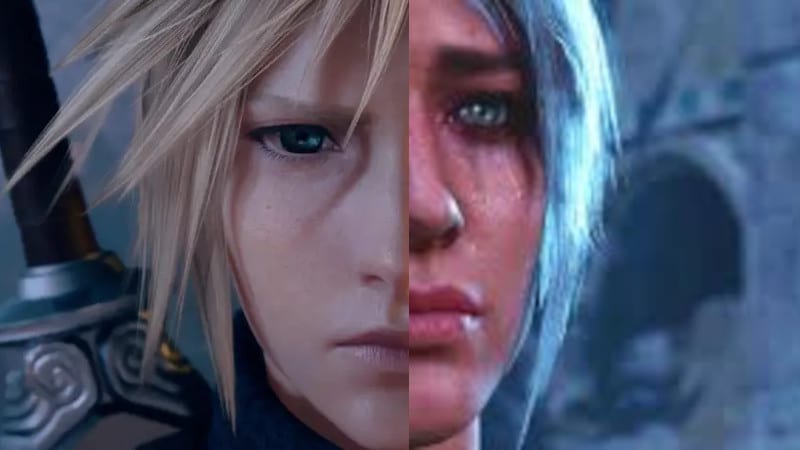The nature of the difference between Western-style RPGs and JRPGs has been a long-running debate. Some people insist that they’re all the same genre, while others feel that JRPGs are more divested than RPGs. They need a more distinct perspective rather than focusing on a region of interest in the subgenere.
How To Identify
Role playing games, or RPGs, are typically characterized by having the player step into the role of a character within the game and play out that role however they wish, at least within the confines of what the game allows. Using this definition, just about any modern game could be considered an RPG. So what is it that makes an RPG?
The answer to that is (usually) a combination of character progression and narrative. Character stats go up as the scope of the story increases. Overall styles of progression and storytelling vary wildly from title to title, sometimes even among games within a singular series. There are, however, a couple of major differentiations that form the distinction between RPG and JRPG.
Narrative Style
Western: Player-Centric
Western-styled RPGs tend to focus on a single player-created character, such as what’s seen in popular games like The Elder Scrolls or Fallout. There are exceptions to this, of course, with games like Dragon Age or Baldur’s Gate. However, even though these games include party members who the player frequently interacts, the story is still told through the perspective of the player’s avatar.
This creates a specific format for the narrative wherein there are not typically opportunities for alternative POVs or narrative cutaways where the audience can see what’s happening elsewhere. However, players are largely free to explore the world as they wish and engage in a seemingly-limitless amount of side content. This player-centric methodology is appealing to many players.
Japanese: Self-Insert
Conversely, JRPGs tend to feature groups of prewritten characters, such as those seen in the beloved Final Fantasy series, going through a narrative in which the player has very little influence. The lack of a self-insert avatar for the player means that all of the characters can be more fully-realized. Cutscenes aren’t limited to a small number of player-directed responses.
As a result, JRPGs are able to employ many more dramatic techniques, such as making the player aware of things long before the characters are. They also tend to become grander in scope, to the point where there is a trope about killing God. The stronger focus on a cohesive narrative results in less freedom in a linear story. A character-centric narrative is capable of telling a more detailed story, but some players may find it difficult to connect to the characters without an avatar.
Diverse Progression

Western: Explore & Discover
If you’ve ever played D&D or something similar, then you might already have an idea of what to expect from a lot of western-styled RPGs and their progression systems. Many of them are actually mechanically based off of D&D, such as Pillars of Eternity or Solasta, or are literally implementations of D&D like the immensely popular Baldur’s Gate 3. Regardless, certain conventions tend to hold true.
As players gain experience, they gain abilities and become harder to kill. However, much of their power tends to come from items. RPGs tend to have items with a variety of stats, many of which are randomly determined, making the equipment system more complicated. Although some loot is predetermined, much of it is randomized, so players may get lucky with drops that are significantly more powerful than a key item in the story. Also, the idea of builds tends to be much more prevalent.
Japanese: A Linear Path
JRPGs tend to have characters progress linearly. It’s also true that much of their power will end up coming from their equipment, but since available gear is usually determined by where the player is in the story, this also becomes a more linear progression. Exceptions to this exist, however, such as seen in the shops of Octopath Traveler. Though builds are still somewhat present, such as with the materia system in Final Fantasy 7: Remake, characters will often be pre-oriented towards a specific role.
Final Words
JRPGs also seem to be more willing to experiment with narrative tone than their western counterparts. Whereas RPGs tend to be a little self-serious with moments of humor (again, exceptions such as Divinity: Original Sin), JRPGs have everything from very grounded political stories like the Trails series, to off-the-wall hijinks of the parody Neptunia series. It’s hardly the most significant (or consistent) marker, but it’s worth mentioning. As it all comes down to preference, neither is really superior to the other, but the difference is pretty clear, to the point where they hardly resemble one another at all.
For More Great Content
Are you desiring top-tier content that covers everything? From thrilling sports and intoxicating entertainment news to gaming tips and professional betting advice, Total Apex covers it all. Delve into our no-fluff articles to stay ahead of the game with the latest sports action, uncover the hottest trends in entertainment, and get the latest scoops in the gaming industry that will take your experiences to the next level.
Finally, our betting advice will give you a decisive edge over the competition and increase your odds of beating the books. Whether you’re looking to stay updated or gain a competitive edge, Total Apex is your one-stop shop for all things compelling and relevant. Don’t forget we cover Fantasy Sports, too!
Check out all our sites: Total Apex Sports, Total Apex Fantasy Sports, Total Apex Entertainment, Total Apex Sports Bets, and Total Apex Gaming. Out of the ashes of obscurity will rise a beast. Always remember to Respect The Hustle! Follow us on Twitter/X @TotalApexSports to stay informed.


